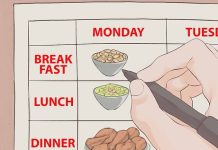[ad_1]
Max Pozzo was inside playing his favourite video game on a cold February afternoon when something went wrong.
His dad, Mike, suddenly collapsed as he was making dinner in their suburban Calgary home. Eight-year-old Max dropped everything, ran to his father’s side, helped him up and immediately noticed some disturbing symptoms.
“He was just sitting on the couch. His left side wasn’t really that much moving,” said Max, who quickly discovered his dad couldn’t pick up an empty glass with his left arm, one side of his face was drooping, and his speech was slurred.
“It was serious, I realized. I was just making sure it was a stroke.”
Table of Contents
Toggle‘I was really afraid’
Max called 911 and his dad was rushed to hospital, where he received clot-busting drugs, a treatment that — when given within a few hours of stroke — increases chances of survival and reduces long-term complications.
“I just stayed calm. But I [was] just like so afraid and shocked that my dad [was] having a stroke.”
It turns out Max had learned the signs of stroke just five days earlier during a Jump Rope for Heart event at his school.
Mike and Max Pozzo hope other Albertans will take the time to learn the signs of stroke. (Jennifer Lee/CBC)
‘I’m in debt to him’
“I’m blessed that I’ve got an amazing son, for sure,” said Mike Pozzo, 41, who is thankful for his son’s quick thinking.
“I’m in debt to him, ironically.”
Mike spent months recovering after losing 80 per cent of the mobility in his left arm and leg. He returned to work as a firefighter less than a week before Father’s Day.
“The quicker he reacted and I got to the hospital made it worth while,” said Mike.
Empowering kids
According to the Heart and Stroke Foundation, an average of 13 Albertans suffer from stroke every day.
“This underscores the importance of everyone learning the signs,” said Donna Hastings, CEO of the Alberta chapter of the Heart and Stroke Foundation, which recently started teaching kids those signs during school events.
Quick treatment can improve stroke outcomes, which is why it’s important to know the most common signs of stroke. (Heart and Stroke Foundation of Canada)
“Time is brain in the case of of a stroke. Each minute that passes 1.9 million brain cells will die. So the fact that Max called immediately, got help immediately…. It really is a wonderful story,” said Hastings.
Hearing about the actions of young Max brought tears to the eyes of Megan Rietze, the Jump Rope for Heart co-ordinator, who led the event at Max’s school less than a week before his father’s stroke.
“Knowing that [this] isn’t just a skipping program, but it’s something they can use in everyday life to save someone’s life, is really important,” said Rietze, who teaches kids that the quicker they act when someone is having a stroke, the better the outcome.
“It’s super rewarding and super heartwarming knowing that something we taught actually saved someone’s life. It’s an amazing feeling.”
Max Pozzo, 8, learned the signs of stroke at a Jump Rope for Heart event at his elementary, McKenzie Towne School, just five days before his dad’s medical emergency. (Jennifer Lee/CBC)
Helping others
Life is returning to normal for Mike and Max Pozzo. But those chaotic moments on a cold February afternoon will remain with the father and son.
“He could have easily been distracted by other things. But he stopped what he was doing and rushed over,” said Mike. “He just rocked it out.”
The pair hopes other Albertans — young and old — will take some time to learn the signs of stroke and act quickly when they see someone in distress.
“I just care about him. He’s my family,” said Max.
Read more articles from CBC Calgary and like us on Facebook for updates.
[ad_2]







